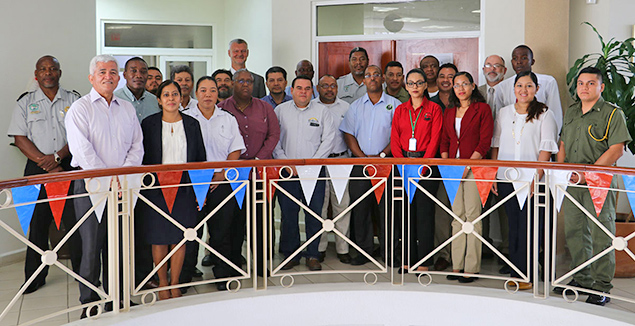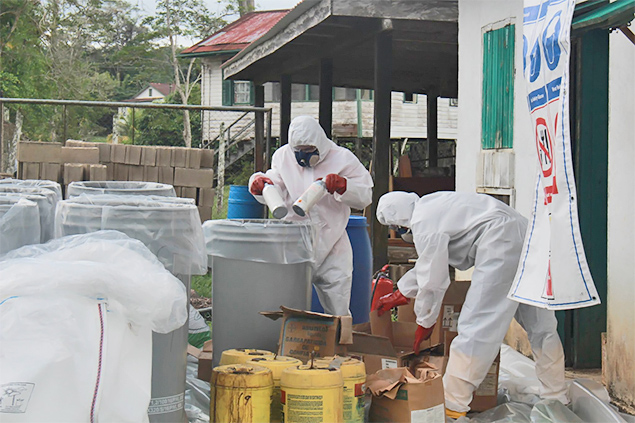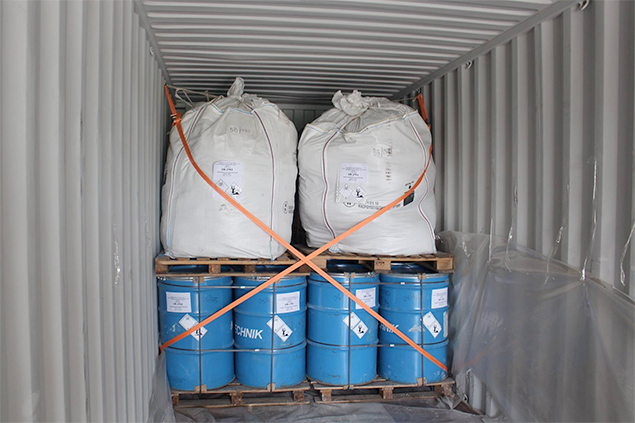Belize Launches Inventory Exercise on Potential Sources of Radiation – The Government of Belize today, September 5, held an opening ceremony to launch the National Inventory on Radiation Sources, an initiative derived from the establishment of a National Radiation Safety Infrastructure in Belize.
A team from the International Atomic Energy Agency (IAEA) Mission to Belize is in the country to carry out this exercise that is jointly spearheaded by the Department of the Environment (DOE) and the Belize Defence Force (BDF).
Personnel from the DOE, Customs Department, BDF, Ministry of Health, Ministry of Energy, and the University of Belize will begin the inventory exercise on 6th September 2017 to collect information on any potential source(s) of radiation. This activity is aimed at establishing a national inventory on radiation sources that will contribute to the development of a national policy and strategy for radiation safety and associated legislative framework in Belize.
The opening ceremony took place at the NEMO Training Room, NEMO Headquarters in the City of Belmopan.
Repackaging and Final Disposal of Hazardous Chemicals Stored in Belize
As far back as the mid-1990s, stockpiles of Persistent Organic Pollutants (POPs) chemicals (including DDT, PCB contaminated transformer oil, and Pesticides such as Aldrin, Dieldrin, and Endosulfan) began accumulating as their use became banned in Belize due to their persistency in the environment and their toxic and carcinogenic properties. These stockpiles were located throughout the country.
As Belize continued implementing the Phase-Out of Ozone Depleting Substances, stockpiles of contaminated refrigerant gases also increased. Since POPs are hazardous to both the environment and human health, their inventory, repackaging, and final disposal have been much talked about in the environmental community, with two (2) failed attempts to secure their final disposal over these years. It was not until November 2016 that the final disposal of stockpiles of POPs, obsolete chemicals and ozone depleting refrigerants began in an environmentally sound manner and through the serious work of the Department of the Environment (DOE).
As part of the final disposal project, the DOE engaged the services of POLYECO S.A. for the repackaging, transport and final disposal of POPs chemicals (including DDT, PCB contaminated transformer oil, Aldrin, Dieldrin, and Endosulfan), obsolete pesticides and ozone depleting substances (global warming potential refrigerant gases). The repackaging and final disposal included the following activities by POLYECO:
1. Obtaining and shipping to Belize the appropriate UN certified and approved containers/drums suitable for packaging and shipment of POPs chemicals.
2. Providing appropriate safety training for a local sub-contractor(s) to accomplish the handling, draining, packing, packaging and labelling of the chemicals.
3. Providing approved training session on the application of the Basel Convention for the transboundary movement of hazardous substance/waste, packaging, safe handling and transportation of hazardous chemicals.
4. Handling and repackaging DDT powder and obsolete pesticides (liquids and solids).
5. Labelling all repackaged chemicals into shipping containers and transporting to a selected port of exit (Western Border).
6. Transporting repackaged chemicals from the selected port of exit to the country identified for final disposal.
7. Arranging for the completion of all customs and Basel/Rotterdam Convention documentation.
8. Providing certification that the chemicals have been destroyed by the disposal facility (the TREDI Saint Vulbas incineration facility in France) in compliance with internationally recognized and mandated emissions standards.
The DOE is pleased to announce that it has completed the entire process, having received certification of disposal from TREDI, and hereby extends a heartfelt thanks to all partners that
contributed to the process.














